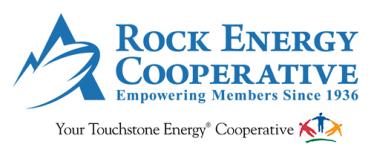
By implementing natural gas conservation strategies, not only will you be contributing to a more sustainable future, but you will also have the freedom to enjoy the financial benefits that come with reduced energy usage. Here are some conservation tips to save on your gas bill:
Furnace
The largest part of your winter natural gas bill will be the furnace.
- Change the filters on a monthly bases to keep dirt and dust from circulating throughout the home and collecting in the ducts.
- If you adopted a warmer dress code, and added a layer of clothing, you will be able to reduce your thermostat setting by a couple of degrees and remain comfortable.
- Opening the drapes during the day to let in the warming sunlight is a cheerful way to lesson the load on your furnace.
- Closing the drapes at night to keep out the cold also reduces the energy load of your furnace.
- A temperature of 68 degrees Fahrenheit is often considered the best temperature to set thermostat in winter to save money. But why is 68 degrees the best winter thermostat setting? In winter, heat loss through walls, windows, and doors is a significant contributor to energy wastage. At 68 degrees, your heating system provides enough warmth to counteract this heat loss. This means that you're efficiently maintaining a comfortable temperature indoors without unnecessarily overheating your home – a practice that would drive up your energy bills.
Hot Water Heater
Next to your furnace, the hot water heater is the next highest user of natural gas in your home.
- Set the thermostat to a safe and comfortable setting, 120 degree F is often recommended.
- Installing low flow shower nozzles reduces the amount of hot water used during each shower.
- If you prefer baths, lowering the water level a couple of inches will reduce the amount of hot water used.
- Not running the hot water while shaving is another small way to reduce your natural gas bill.
- When rinsing dishes, run the hot water only when rinsing.
Gas Stove
The appliance you have the most control over is your gas cook stove.
- Never use the gas stove to heat the kitchen.
- Natural gas is instant on and instant off, so turn off the burners when not in use.
Home
Your home is a big box with holes, called doors and windows. These holes are all potential leaks of energy. A walk around your home, both inside and out, is a way to find out if any of these potential leaks have become actual leaks.
- Hot summers and cold winters take their toll on caulking and weather stripping around these doors and windows, so periodic inspections help stop leaks before they become severe.
- Cold drafts in winter, and warm spots in summer, are signs of potential problems.
Lifestyle
Adopting a conservation minded lifestyle is easy to do and cost nothing to begin.
- People, kids, and pets often enter and leave the home every day, and the doors don’t automatically close themselves. Reminding the family to fully close the door after each trip is an easy first step.
- Installing the storm windows in a timely manner helps reduce the energy costs of your natural gas.
- Dressing more warmly during the winter allows you to lower your thermostat setting a couple of degrees while still staying comfortable.
